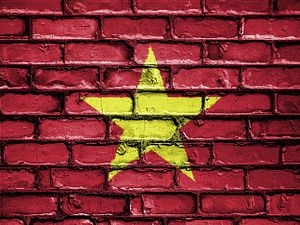For Vietnam watchers, the sheer number of political prisoners is hard to keep up with. The 88 Project’s database of “persecuted activists” counts 263 activists currently in prison, and 101 at risk, while Amnesty International reckons there were 128 prisoners of conscience, according to a report from May. Another name to add to those lists is Michael Phuong Minh Nguyen, a U.S. citizen who was sentenced to 12 years in prison on Monday for “attempting to overthrow the state,” a charge typically leveled against anyone who protests against the ruling Communist Party, particularly in large demonstrations.
Things are deteriorating in Vietnam. Human Rights Watch’s end-of-year report stressed that “Vietnam’s appalling human rights record worsened in 2018 as the government imprisoned dissidents for longer prison terms, sanctioned thugs to attack rights defenders, and passed draconian laws that further threaten freedom of expression.” Its annual report for 2019 will likely describe yet another worsening year for Vietnam’s human rights record.
But one question worth asking is why repression is worsening. There are several theories. It could be that there are now simply more critics of the Communist Party. It could be that critics are becoming more brave and outspoken, and the Party increasingly concerned about its popularity. It could be that protests against the Party are becoming larger; demonstrations against the planned Law on Special Administrative and Economic Zones in June 2018 were nationwide and the largest in recent history (more than 120 have been convicted for participating in these protests). It could be that the anti-China narrative of many of the critics raises serious questions about the Party and its position in Vietnamese nationalism. It could be that social media has made it easier for the authorities to monitor what people say.
Or it could overtly political. It could be that the Ministry of Public Security wants to grab more power for itself and weaken other ministries, and is now engaged in a contest with the Ministry of Information and Communications over who should be the main censor. It could be that under Donald Trump, the United States has become more sycophantic toward Hanoi and human rights don’t appear to form any aspect in their relations.
It could be that, since 2016, the Party has been controlled by general secretary Nguyen Phu Trong, a more conservative and ideological leader, schooled in the tradition on stamping out any criticism. Before the 2016 Party Congress, then-Prime Minister Nguyen Tan Dung “said that instead of stewing over criticism posted to the internet, ministries should make sure that their own version of truth was posted promptly and persuasively,” wrote David Brown in May last year. “That prime minister has been forced into retirement. The current prime minister doesn’t seem to object when colleagues on the CPV’s Politburo insist that dissident voices must be silenced.”
There are, no doubt, truth in all of these. And there is reason to think that the increased repression is being directed by those at the helm of the Communist Party. The law on cybersecurity that came into effect in January is an obvious indication that senior Party officials want greater powers of arrest for what people write online. The current administration is also carrying out re-centralization throughout many of ministries, which would shorten the chain of command. The Ministry of Public Security underwent a major restructuring late last year, with many of its departments chopped or merged, all part of the Party’s goal of building “a focused and lean machine” for more “effective work.”
But if it was all decided by the senior officials, why are there major inconsistencies in who is arrested and jailed? Granted, the authorities have gone after certain well-known figures and those who have ties to banned groups, like the Brotherhood for Democracy. But many of the loudest critics of the Party go unmolested or allowed to leave for exile, while activists who post only a few messages on Facebook are jailed for several years.
The Communist Party is authoritarian but it isn’t totalitarian – and, indeed, it struggles to enforce some rudimentary rules, such as parking motorcycles on the pavement. No doubt, under Trong, compared to under Dung, the senior Party leadership is now more committed to repression. But another reason why things are worsening could be that state repression often takes on a life on its own, as junior officials see that they can attain greater power and wealth by acting more repressively, and as Party officials do not want to appear too soft. History and geography matter, too. It is why some activists in Hanoi consider themselves safer than those in Ho Chi Minh City. It is why the authorities are more repressive and violent when urban activists try visiting the countryside to meet rural activists.
Bureaucracies in any country tend to “work toward” a certain goal, be it democratic or dictatorial. So as the number of Party critics arrested increases, others in the bureaucracy start to think this is what they ought to be working towards as well. Judges hand down longer and longer sentences, so other judges think this is what they should be working towards. Provincial police arrest someone for sharing an anti-Party message online, so security personnel in another province reckon they ought to do the same. I have it on good authority that the Ministry of Public Security has allowed local police officials greater autonomy in arresting people for anti-Party comments made online, which has no doubt created some competition among junior officials to act more repressively.
Moreover, it is not only the accused who is under the spotlight; if the authorities don’t arrest more and more people, or if a judge hands down a light sentence, what does it indicate about their thoughts on the Party? Indeed, if one judges sentences a political prison to 10 years in jail, what would it say about a judge who sentences someone else for the same crime to only two years? Repression, rather naturally, becomes self-fulfilling.
































